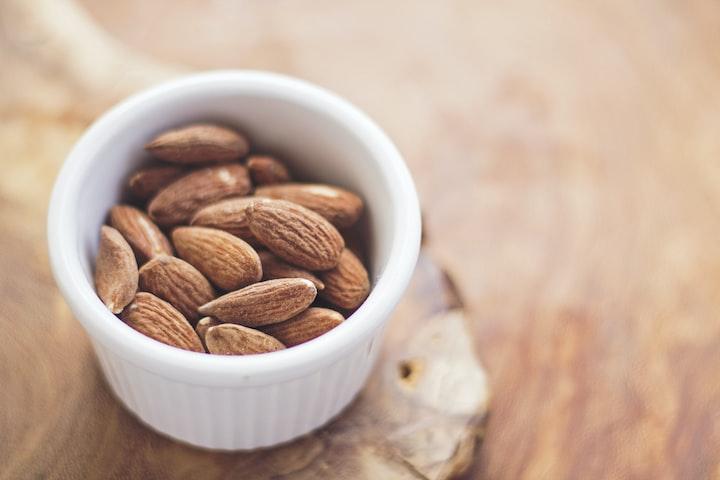There is no all-purpose answer as different foods can have different effects on the brain depending on a person’s individual needs. However, some general guidelines for choosing brain-healthy foods include selecting those that are high in antioxidants, omega-3 fatty acids, and B vitamins. These nutrients have all been linked with improved cognitive function and a reduced risk of developing Alzheimer’s disease and other forms of dementia.
Some specific examples of foods that may be beneficial for the brain include blueberries, salmon, nuts, avocados, and dark leafy greens such as spinach and kale. These foods are all rich in nutrients that have been shown to support cognitive health. In addition to eating brain-healthy foods, it is also important to limit intake of unhealthy substances such as alcohol and nicotine which can damage the brain over time.
Fatty fish. When people talk about brain foods, fatty fish is often at the top of the list
Your brain is mostly fat, so it makes sense that eating fatty fish would be good for your brain. Fatty fish like salmon, trout, herring, and sardines are rich in omega-3 fatty acids. These healthy fats can help to protect your brain from damage and improve cognitive function.
Studies have shown that people who eat fatty fish on a regular basis have a lower risk of developing Alzheimer’s disease and other forms of dementia. Omega-3 fatty acids are thought to play a role in this by reducing inflammation in the brain and helping to preserve cognitive function as we age.
In addition to being good for your brain, fatty fish are also an excellent source of protein and other nutrients like vitamin D. So if you’re looking for a food that’s good for both your body and your mind, look no further than fatty fish!
Coffee. If coffee is the highlight of your morning, you’ll be glad to hear that it’s good for you
Coffee has been shown to have many health benefits, including improved brain function. Coffee contains caffeine, a natural stimulant that increases your alertness and focus. Caffeine also helps the brain to release dopamine, a neurotransmitter that plays a role in motivation and reward. Studies have shown that coffee drinkers have better memory and reaction times than non-drinkers.: In addition to its cognitive benefits, coffee may also protect your brain from age-related damage. One study found that older adults who drank three or more cups of coffee per day were less likely to experience age-related mental decline than those who didn’t drink coffee. Another study found that women who drank one or two cups of coffee per day had a lower risk of developing Alzheimer’s disease.
So there you have it: coffee is good for your brain! Whether you’re looking to boost your cognitive performance or protect your brain from age-related damage, drinking coffee is a great way to do it. So next time someone tries to tell you that coffee is bad for you, be sure to set them straight!
Blueberries
Blueberries are packed with antioxidants. These nutrients help protect your cells from damage and can improve communication between cells. They can also help reduce inflammation, which has been linked to a variety of health problems including Alzheimer’s disease.
Blueberries contain compounds that can help improve your memory and cognitive function. One study found that blueberry consumption improved memory in older adults. Another study found that blueberry powder improved cognition in children aged 8-10 years old.
Blueberries may also help reduce the risk of developing Parkinson’s disease and other age-related neurological disorders. A compound found in blueberries called anthocyanin has been shown to protect neurons from damage caused by free radicals.
Turmeric
Inflammation is a normal immune response, but chronic inflammation can contribute to the development of many diseases, such as heart disease, cancer, and Alzheimer’s disease. Antioxidants are substances that protect cells from damage caused by harmful molecules called free radicals.
Studies have shown that curcumin can help to reduce inflammation and improve cognitive function in people with Alzheimer’s disease. It may also help to prevent the formation of plaques that are associated with this condition. Curcumin supplements are available online and in health food stores. however, it is important to choose a product that contains a high percentage of curcumin oids (the active ingredients in turmeric) for maximum benefit.
Broccoli
Research has shown that broccoli may help to improve cognitive function and reduce the risk of age-related mental decline. One study found that older adults who ate broccoli daily had better short-term memory and verbal fluency than those who didn’t eat it.
Another study showed that people who consumed more cruciferous vegetables, including broccoli, had a lower risk of developing Alzheimer’s disease. Broccoli may also help to prevent other forms of dementia.
The nutrients in broccoli are thought to promote brain health by protecting cells from damage, reducing inflammation, and increasing blood flow to the brain. These effects may help to improve cognitive function and reduce the risk of age-related mental decline.
Pumpkin seeds
Pumpkin seeds are a good source of several nutrients that are important for brain health, including zinc, iron, and vitamin B6. They also contain antioxidants and anti-inflammatory compounds. All of these properties may help protect the brain from damage and improve cognitive function.
Dark chocolate
So, what makes dark chocolate so good for your brain?
For one, dark chocolate is a rich source of antioxidants. These nutrients help to protect your cells from damage and promote healthy brain function. In addition, dark chocolate contains flavonoids, which are believed to boost cognitive performance and protect against age-related decline.
So, if you’re looking for a delicious way to improve your brain health, reach for some dark chocolate!
